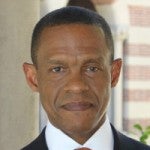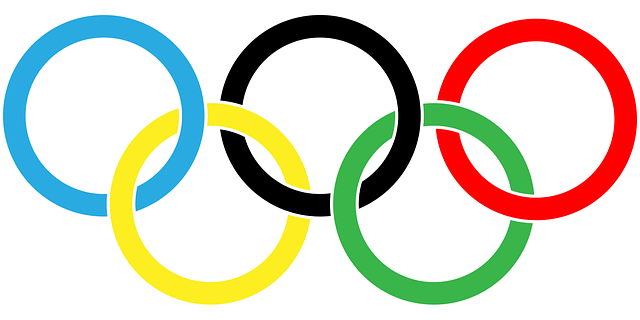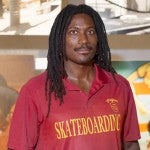“Despite being marginalized in the sporting sphere and often stereotyped in popular culture, skateboarding and skateboarders remain one of the most accessible, tenacious and culturally-rich communities to grace the Olympic stage.”
With no fans present, will the games be a ratings disaster?
 “This is the Olympics of uncertainty. Olympics broadcasts have been strikingly consistent over the last 60 and more years. This year breaks that streak.
“This is the Olympics of uncertainty. Olympics broadcasts have been strikingly consistent over the last 60 and more years. This year breaks that streak.
“The Olympics have long sold themselves on being a global event. The venue audience, jammed together, holding up flags from their various countries, is an important part of creating the image of a global celebration. Empty stands reduce this to athletes alone on a field; no sense of moment, no epic global sports struggle. NBC pays enough money to present this as a massive global celebration. But, with no celebrants, it’s an empty show. Barring a compelling sports story arising from the competition, this could be a ratings disaster.”
Daniel Durbin is a professor of communication and director of the USC Annenberg Institute of Sports, Media and Society. His current research interests include a rethinking of the entire process of sport as performative public discourse.
Contact: ddurbin@usc.edu
Olympics show us we’re more alike than we’re different
 “The Japanese public has made plain an eminently reasonable concern about whether holding an Olympics here, now, is prudent. That’s why the government has ruled there won’t be any fans in the stands. That’s going to be straight-up weird.
“The Japanese public has made plain an eminently reasonable concern about whether holding an Olympics here, now, is prudent. That’s why the government has ruled there won’t be any fans in the stands. That’s going to be straight-up weird.
“At the same time, the athletes have been training for not just four but five years. They all are jumping at the chance to compete.
“What the pandemic has proven, unequivocally, is that all of us on Planet Earth, no matter where we are from, no matter what we look like or what languages we speak — each and every one of us not only wants but needs hopes and dreams. And, as well, one-to-one contact with each other to affirm that, in the end, we are more alike than we are different. That’s what the Olympics are all about.”
Alan Abrahamson is an associate professor of professional practice at the USC Annenberg School for Communication and Journalism. He is an award-winning sportswriter who has reported on 11 Olympic Games throughout his career.
Contact: ayabraha@usc.edu
How to prevent COVID-19 outbreaks at the Olympics
 “Other sports organizations like professional baseball, football and basketball teams in the U.S. were very successful with COVID-19 control through daily testing. The Olympics are a unique situation for COVID-19. Athletes from all over the world are housed together in crowded dormitories. Anything short of vaccination requirements and daily testing will likely lead to outbreaks and increased spread of infection.
“Other sports organizations like professional baseball, football and basketball teams in the U.S. were very successful with COVID-19 control through daily testing. The Olympics are a unique situation for COVID-19. Athletes from all over the world are housed together in crowded dormitories. Anything short of vaccination requirements and daily testing will likely lead to outbreaks and increased spread of infection.
“The good news is that athletes in general are at very low risk of serious disease, hospitalization or death due to their young age and outstanding physical health.”
Jeffrey Klausner is a clinical professor of medicine, population and public health sciences at the Keck School of Medicine of USC and a research scientist at the USC COVID-19 Pandemic Research Center.
Contact: jdklausner@med.usc.edu
Keeping the Olympics safe and secure
 “Having consulted on the security countermeasures for the Olympic Games in the past, I understand the complexity and steadfast commitment required to ensure the safety and security of the largest gathering of athletes in the world.
“Having consulted on the security countermeasures for the Olympic Games in the past, I understand the complexity and steadfast commitment required to ensure the safety and security of the largest gathering of athletes in the world.
“Despite the reduced presence of spectators, personnel and related staff this year due to COVID protocols, terrorist threats remain. I am confident the security countermeasures for the games will be paramount and appropriately executed in Tokyo.”
Erroll Southers is the director of the Safe Communities Institute and of homegrown violent extremism studies at the USC Price School of Public Policy. Southers previously served as California Gov. Arnold Schwarzenegger’s deputy director in the California Office of Homeland Security and as chief of homeland security and intelligence for the Los Angeles World Airports Police Department.
Contact: southers@price.usc.edu
Image via Pixabay








